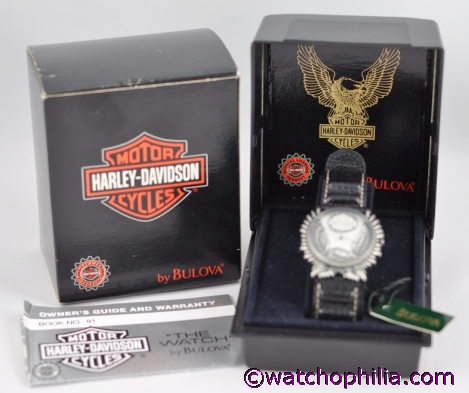Opinions Are Not Facts
A new thread on another watch site last week reminded me of just how important good research is, and how misleading and damaging inept research and unsupported opinions can be. The post was started by someone who holds himself out to be an expert in all things Bulova. He was writing about a particular watch and made the bold assertion that the watch is a fake. He even went so far as to refer to the watch as a “Chinese knock off”. The watch happens to be one that I own, so the thread naturally caught my interest. Here’s my example of the watch in question:


The post in question can be found here: https://www.mybulova.com/node/4498. The picture of the watch used in the post that cast doubt on its authenticity belongs to an eBay seller in a listing that just went up for sale minutes before the post was published. Poor bloke.
The basis of the poster’s claim that the watch is a fake is that he looked around on the Internet and didn’t find anything. Huh? Is that what passes for good research these days? He couldn’t have looked very hard, or he would have found my listing, which includes the original box, which, as you can see, even shows the basic design of the watch on the inside of the box lid. And what about contacting Bulova corporate? Wouldn’t that have been an obvious way to go, if you want to know the facts rather than just spout off unsupported opinions?
Well, I did contact Bulova corporate, sending them the two pictures posted above, and here’s what they said:
"It is a Bulova, sorry I did not return your e-mail on Friday, I got
involved looking for the catalog which I have not found as of yet. But its
a real Bulova product."
A couple of days later, the same corporate representative sent me the screen capture of their corporate computer system, which showed the serial number of my watch and the item number on my hang tag and outer box sticker as belonging to this Bulova-made Harley Davidson watch. The model was introduced in 1991. My watch dates to 1996.
So, the watch is definiately not a fake.
Why, you may ask, do I care about this enough to write a blog entry on it? For one thing, I own the watch. But that’s not really what got me going. There are several much more important issues involved here, namely:
- A legitimate watch was bashed without any basis in fact. The claimed “research” was non-existent, but the suggestion that research was done probably got a lot of people believing that the conclusions had some actual support.
- I would be embarrassed to claim that I know something about Bulova watches if all I ever did was look around on the Web and then make wholly unsupported pronouncements to as many people as I could get to listen. I think some people, like that poster, should be very embarrassed and a lot more careful about what they say in a public setting.
- Then there’s the obviously inappropriate use of “IMO” (in my opinion) when the issue under discussion is a matter of fact, not opinion. An opinion is, for example, “the best color is green”. Obviously, that can’t be proved, and someone else may be of the opinion that yellow is a better color. Both points of view are equally valid. The same cannot be said for an assertion of fact, such as “this watch is a fake”. That is a statement of fact, which, unlike mere opinion, can be proven or disproven. So, the silly habit of sticking “IMO” after a statement of fact is meaningless and is simply an attempt to insert an escape clause, in case someone else actually does the research and proves the assertion false.
- Think about the poor eBay seller who posted that watch. Now it has been displayed on one of the most popular watch sites on the Web and pronounced a tacky fake. Nice way to kill someone else’s sale.
- One of the problems with the Web in general is that people tend to believe everything they read, as though the fact that it appeared in print gives it inherent credibility. Well, it doesn’t. Anything can get posted on a website, and anybody who participates in a discussion site can say whatever they want with the hope that you’ll believe it. And many do. Before you know it, someone’s eBay sale has gone south and yet another urban myth has been born.
So, please, do yourself and the world a favor, and the next time someone makes wholly unsupported claims, followed by a lame “IMO”, don’t just go along with it. Challenge it. Research it. Find the truth.
